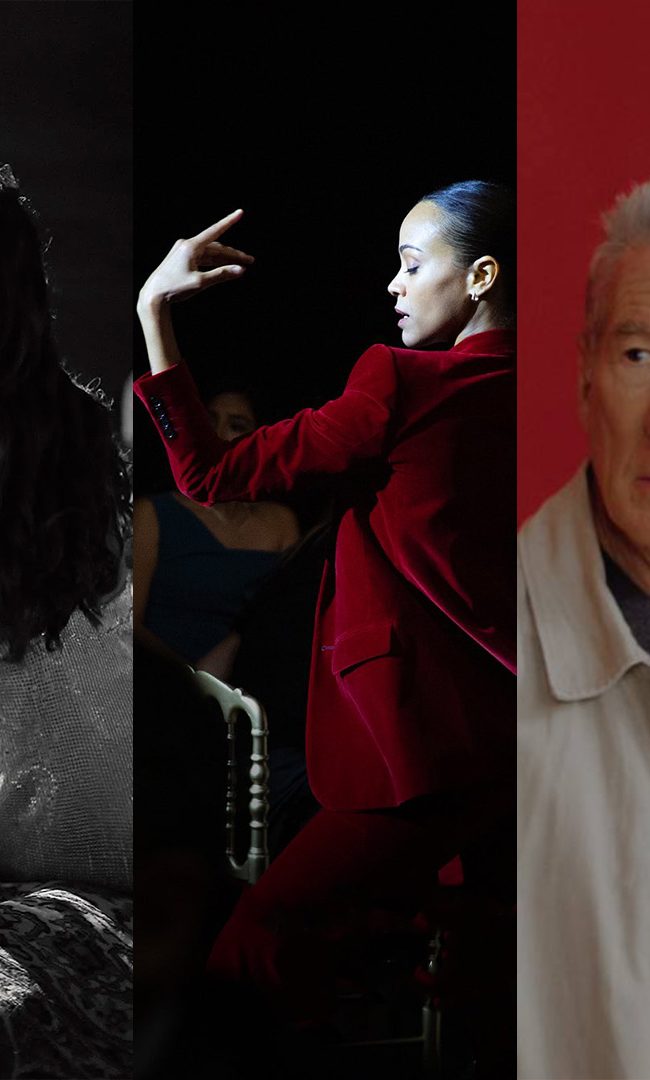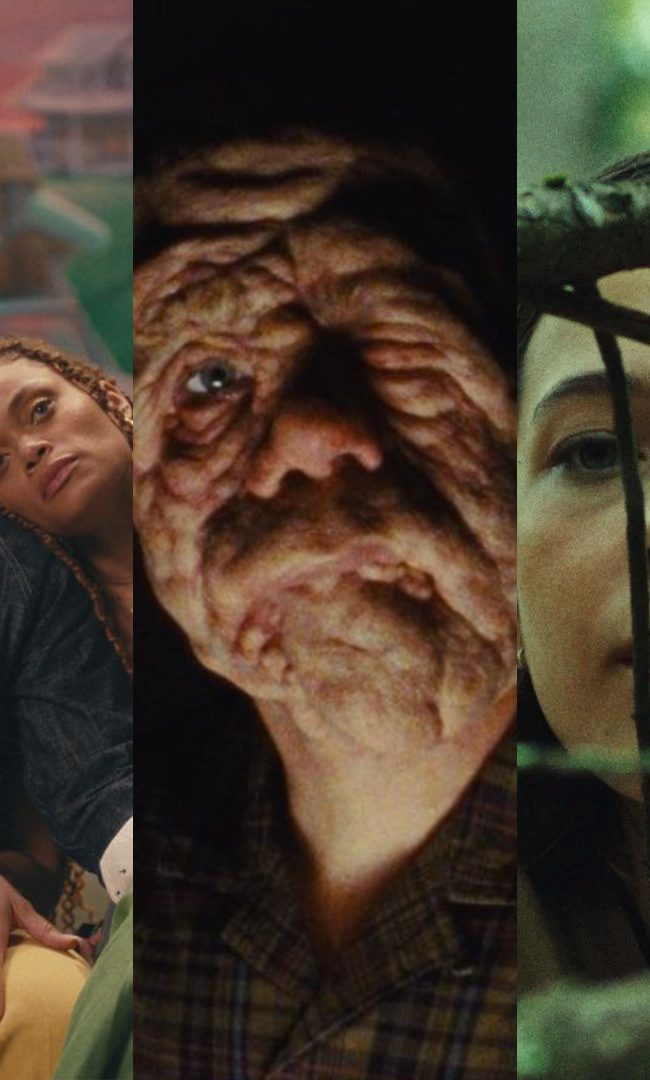TREEFORT FILM FEST ’14: WRAP-UP
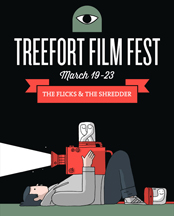 Elsewhere in Idaho, Treefort Film Fest serves as a perfect counterpoint to the previous week’s Sun Valley Film Festival. Younger, edgier, and at a much lower altitude, Treefort’s film component is a brand new addition to a much larger festival now in its third year. Rivaling the early years of SXSW in ambition, scope, and youthful verve, Treefort is predominantly a music festival featuring hundreds of (mostly local) bands scattered throughout the easily commutable and addictively charming capital city of Boise. There are also facets celebrating everything from computer hacking to yoga to craft beer.
Elsewhere in Idaho, Treefort Film Fest serves as a perfect counterpoint to the previous week’s Sun Valley Film Festival. Younger, edgier, and at a much lower altitude, Treefort’s film component is a brand new addition to a much larger festival now in its third year. Rivaling the early years of SXSW in ambition, scope, and youthful verve, Treefort is predominantly a music festival featuring hundreds of (mostly local) bands scattered throughout the easily commutable and addictively charming capital city of Boise. There are also facets celebrating everything from computer hacking to yoga to craft beer.
While the film festival may be dwarfed in comparison to the massive selection of live music, it makes up for it on the principle that every film programmed is unmissable. Festival programmers Ben Morgan and Ian Clark are also the heads of the Eastern Oregon Film Festival, and while much of the slate of that festival carries over—I’ll try not to parrot Paul Sbrizzi’s excellent wrap-up from Oregon too much—it’s certainly forgivable given their excellent and distinctly personal curatorial sensibilities.
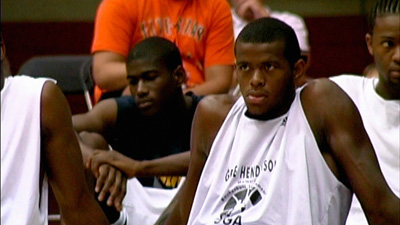 I was most impressed by the run of noteworthy documentaries: a bold selection that mostly consisted of the narratively flowing, uniquely crafted variety. While it’s been touring the country since Tribeca last year and has already premiered on Showtime, the Safdie Brothers’ Lenny Cooke was new to me and deserves all of the attention that it can be lavished with. A perfect tragic arc that follows the titular young basketball star as he heedlessly entrusts his future to the unforgiving machinations of the NBA draft, which ultimately rejects him, Cooke ranks close to Hoop Dreams as a classic cautionary tale of athletic ambition.
I was most impressed by the run of noteworthy documentaries: a bold selection that mostly consisted of the narratively flowing, uniquely crafted variety. While it’s been touring the country since Tribeca last year and has already premiered on Showtime, the Safdie Brothers’ Lenny Cooke was new to me and deserves all of the attention that it can be lavished with. A perfect tragic arc that follows the titular young basketball star as he heedlessly entrusts his future to the unforgiving machinations of the NBA draft, which ultimately rejects him, Cooke ranks close to Hoop Dreams as a classic cautionary tale of athletic ambition.
 Lotfy Nathan’s 12 O’Clock Boys manages to similarly uncover a tragic arc by mining its material for the thematic connections to classic narratives: it’s ostensibly the most intense remake of Bicycle Thieves possible, and harkens back to everything from Badlands to Two-Lane Blacktop to find what makes its central characters, young Baltimore boys who find pathos and fulfillment in vehicular fame, tick. It’s sort of amazing that the tale of inner city kids who ride their motorcycles straight back in a symbolic fuck-you to the police isn’t already widely known, but Nathan’s film serves as a gorgeous introduction that manages to be both endearing and objective. Like Lenny Cooke, Boys has already been traversing the festival world for some time, but it’s a testament to the programmers’ curatorial taste that they managed to snag the film for their simultaneously slim and delectable slate. The same goes for Tracy Droz Tragos and Andrew Droz Palermo’s Rich Hill, which was recently awarded the Grand Jury Prize at Sundance, and Rithy Panh’s Oscar-nominated The Missing Picture.
Lotfy Nathan’s 12 O’Clock Boys manages to similarly uncover a tragic arc by mining its material for the thematic connections to classic narratives: it’s ostensibly the most intense remake of Bicycle Thieves possible, and harkens back to everything from Badlands to Two-Lane Blacktop to find what makes its central characters, young Baltimore boys who find pathos and fulfillment in vehicular fame, tick. It’s sort of amazing that the tale of inner city kids who ride their motorcycles straight back in a symbolic fuck-you to the police isn’t already widely known, but Nathan’s film serves as a gorgeous introduction that manages to be both endearing and objective. Like Lenny Cooke, Boys has already been traversing the festival world for some time, but it’s a testament to the programmers’ curatorial taste that they managed to snag the film for their simultaneously slim and delectable slate. The same goes for Tracy Droz Tragos and Andrew Droz Palermo’s Rich Hill, which was recently awarded the Grand Jury Prize at Sundance, and Rithy Panh’s Oscar-nominated The Missing Picture.
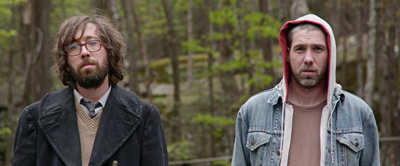 On the narrative front, the festival opened with a night curated by Filmmaker Magazine and featuring Eddie Mullins’ Doomsdays, in which a smarmily against-type Justin Rice and Leo Fitzpatrick give up any semblance of an established life to live in the woods and break into uninhabited (or, more often than not, seeming uninhabited) vacation homes, bemoaning the end of the world due to the theory of “peak oil.” Mullins utilizes his still cameras on sticks to their fullest, sometimes populating the frame with up to four or five simultaneous sight jokes, and gets maximum mileage out of his repeated breaking-and-entering structure. Much like its vagabond characters, the film never overstays its welcome, and manages to achieve a very distinct blend of sadness, compassion, and vulgar wit. The screening was followed by an equally entertaining Skype Q&A, which continued Mullins’ pattern of staging different jokes in different grounds of the frame: while Mullins hilariously recounted stories from set, behind him, unbeknownst to the director, actor Justin Rice managed to realize and mine the slapstick comic potential of the internet streaming Q&A.
On the narrative front, the festival opened with a night curated by Filmmaker Magazine and featuring Eddie Mullins’ Doomsdays, in which a smarmily against-type Justin Rice and Leo Fitzpatrick give up any semblance of an established life to live in the woods and break into uninhabited (or, more often than not, seeming uninhabited) vacation homes, bemoaning the end of the world due to the theory of “peak oil.” Mullins utilizes his still cameras on sticks to their fullest, sometimes populating the frame with up to four or five simultaneous sight jokes, and gets maximum mileage out of his repeated breaking-and-entering structure. Much like its vagabond characters, the film never overstays its welcome, and manages to achieve a very distinct blend of sadness, compassion, and vulgar wit. The screening was followed by an equally entertaining Skype Q&A, which continued Mullins’ pattern of staging different jokes in different grounds of the frame: while Mullins hilariously recounted stories from set, behind him, unbeknownst to the director, actor Justin Rice managed to realize and mine the slapstick comic potential of the internet streaming Q&A.
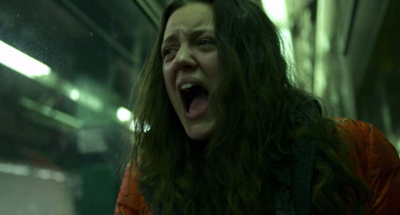 Drew Tobia’s See You Next Tuesday was one film that appeared at Treefort that wasn’t on the Eastern Oregon slate—a fact for which I was incredibly thankful, having missed it at Migrating Forms in New York. A close relative to Doomsdays in that it deals with a dysfunctional family unit of sorts, Tuesday follows Mona (Eleanore Pienta, in a torrentially committed performance), an alienated and mentally unraveling Brooklynite in the final stages of an unnervingly unmonitored pregnancy, as she attempts to reconnect with her estranged, equally freewheeling artist sister (Molly Plunk) and ex-addict absentee mother (Dana Eskelson). Somewhere between Ryan Trecartin, Jane Campion’s Sweetie and Todd Solondz on the sliding scale of earnest, affective obnoxiousness, the first half of Tobia’s debut feature is a hilarious, grueling comic test of audience endurance designed to offend and exhaust in equal measure. Somewhere along the way it manages to morph into one of the most genuinely moving films I’ve seen in some time, as well as one of the most accurate portrayals of how siblings reconnect and forgive. Masterful in its sincerity without being manipulative in the slightest, See You Next Tuesday is a prime example of how films can benefit by loving your characters, no matter how foul mouthed and difficult they may be.
Drew Tobia’s See You Next Tuesday was one film that appeared at Treefort that wasn’t on the Eastern Oregon slate—a fact for which I was incredibly thankful, having missed it at Migrating Forms in New York. A close relative to Doomsdays in that it deals with a dysfunctional family unit of sorts, Tuesday follows Mona (Eleanore Pienta, in a torrentially committed performance), an alienated and mentally unraveling Brooklynite in the final stages of an unnervingly unmonitored pregnancy, as she attempts to reconnect with her estranged, equally freewheeling artist sister (Molly Plunk) and ex-addict absentee mother (Dana Eskelson). Somewhere between Ryan Trecartin, Jane Campion’s Sweetie and Todd Solondz on the sliding scale of earnest, affective obnoxiousness, the first half of Tobia’s debut feature is a hilarious, grueling comic test of audience endurance designed to offend and exhaust in equal measure. Somewhere along the way it manages to morph into one of the most genuinely moving films I’ve seen in some time, as well as one of the most accurate portrayals of how siblings reconnect and forgive. Masterful in its sincerity without being manipulative in the slightest, See You Next Tuesday is a prime example of how films can benefit by loving your characters, no matter how foul mouthed and difficult they may be.
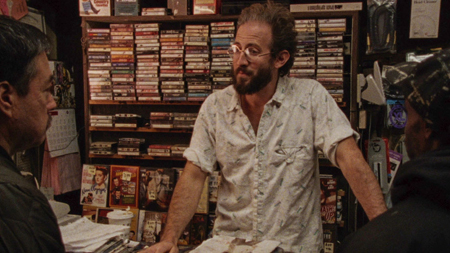 My immediate reaction after seeing Dustin Guy Defa’s short Person to Person was that it was “the best Spike Lee movie Woody Allen never made,” though per usual such comparisons are reductive, not only because the short could draw equal comparisons in tonality and style to Cassavetes and Charles Burnett but because Defa has produced enough work at this point—including last year’s fantastic Lydia Hoffman Lydia Hoffman—to be considered a no budget auteur on his own accord,with Person to Person perhaps being his best. Sad and sweet with rhythmic and very funny dialogue, Person’s most compelling victory is in how, through its 4:3 16mm photography and fastidious production design, it manages to present a wholly anachronistic version of New York. Not a trace of modernity remains in any of its frames. It also features some of the most vibrantly memorable characters I’ve seen on screen in a long while; one of whom only appears within the context of a story.
My immediate reaction after seeing Dustin Guy Defa’s short Person to Person was that it was “the best Spike Lee movie Woody Allen never made,” though per usual such comparisons are reductive, not only because the short could draw equal comparisons in tonality and style to Cassavetes and Charles Burnett but because Defa has produced enough work at this point—including last year’s fantastic Lydia Hoffman Lydia Hoffman—to be considered a no budget auteur on his own accord,with Person to Person perhaps being his best. Sad and sweet with rhythmic and very funny dialogue, Person’s most compelling victory is in how, through its 4:3 16mm photography and fastidious production design, it manages to present a wholly anachronistic version of New York. Not a trace of modernity remains in any of its frames. It also features some of the most vibrantly memorable characters I’ve seen on screen in a long while; one of whom only appears within the context of a story.
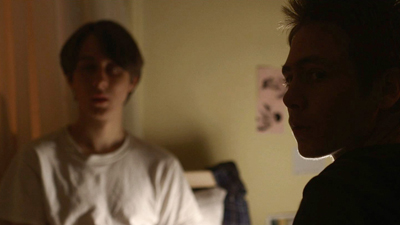 Lauren Wolkstein and Christopher Radcliffe have essentially perfected the art of crafting shorts that know exactly when to withhold and when to dispense information. Their newest, Jonathan’s Chest, which was directed by Radcliffe and co-edited and produced by Wolkstein, is no exception. Depicting one night for a troubled teen in which his brother, long thought to have disappeared, suddenly climbs through his window, the film is crushingly tense. Its final minutes remain probably more seared in my memory than anything else I saw at the festival.
Lauren Wolkstein and Christopher Radcliffe have essentially perfected the art of crafting shorts that know exactly when to withhold and when to dispense information. Their newest, Jonathan’s Chest, which was directed by Radcliffe and co-edited and produced by Wolkstein, is no exception. Depicting one night for a troubled teen in which his brother, long thought to have disappeared, suddenly climbs through his window, the film is crushingly tense. Its final minutes remain probably more seared in my memory than anything else I saw at the festival.
Frances Bodomo’s first short film Boneshaker starred Beasts of the Southern Wild’s Quvenzhané Wallis, but with her new, Sundance-premiering short Afronauts, the director has found a breakthrough ingénue for the film to call its own. Newcomer Diandra Forrest is eminently, strikingly watchable in her role as the teenager selected to man Zambia’s first attempt to send a shuttle to the moon in 1969. Dreamily imaginative and shot in hazy grayscale, Afronauts, which went on to play at New Directors/New Films, should bring Bodomo’s ingenuity to a larger audience.
The trip to Boise also served as an introduction to the city’s eagerly burgeoning film scene, where the Boise Film Underground, a charmingly ambitious group of guerilla filmmakers, projected their experimental wares in the street throughout the festival, some of which were made by the same filmmakers that showed work in Treefort’s local shorts block. I was also introduced to the young (ages 18 through 21) upstarts behind Imperium Films, a rental house created out of frustration over the lack of available filmmaking resources within the state. It seemed to be quickly ballooning in size and scope, with a pretty complete selection of gear and an outfitted post studio, all of which makes me think that Boise is a destination to watch in the independent film world. Treefort certainly is. I can’t imagine this vibrant arts community staying a secret for long; it’s one of the most fun and eclectic festivals I’ve had the pleasure of attending.
— Mark Lukenbill








